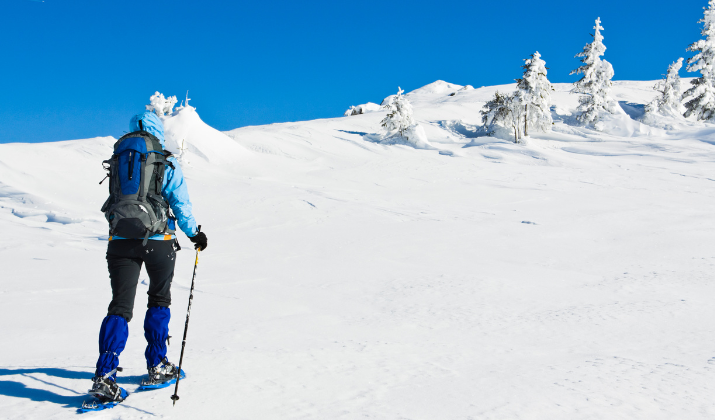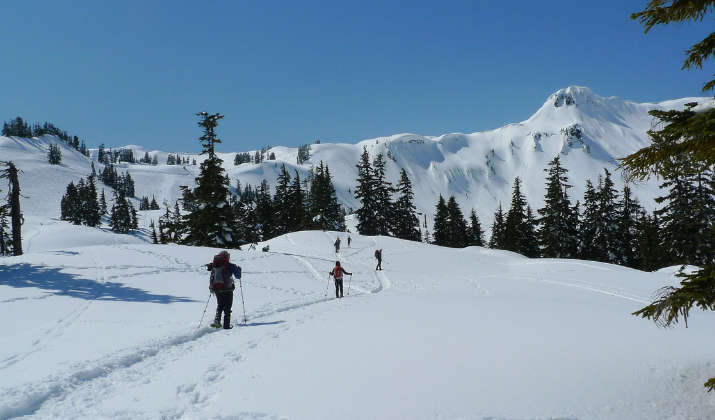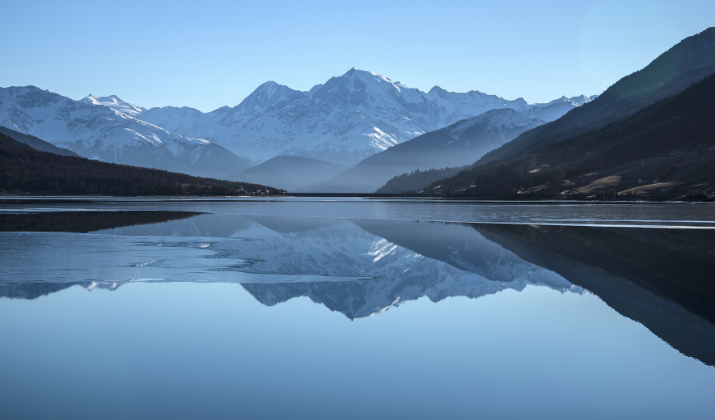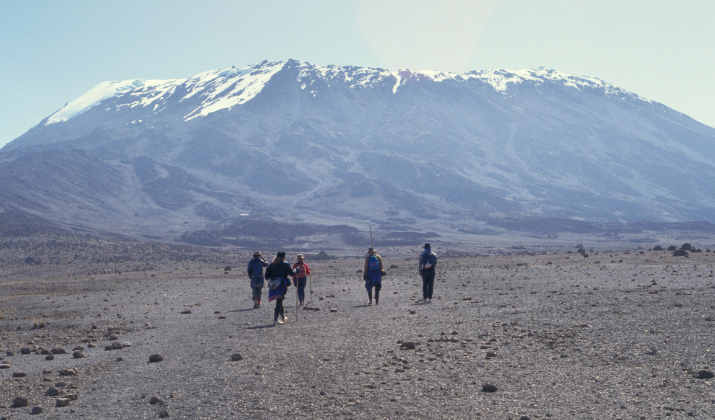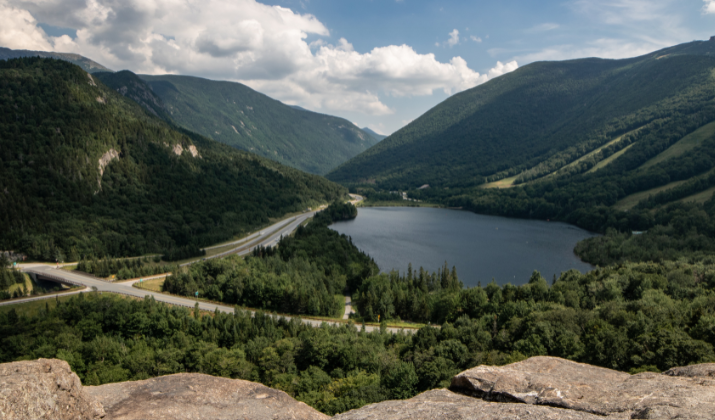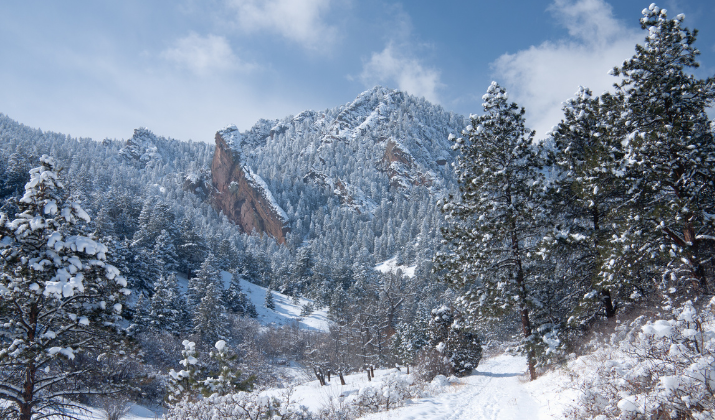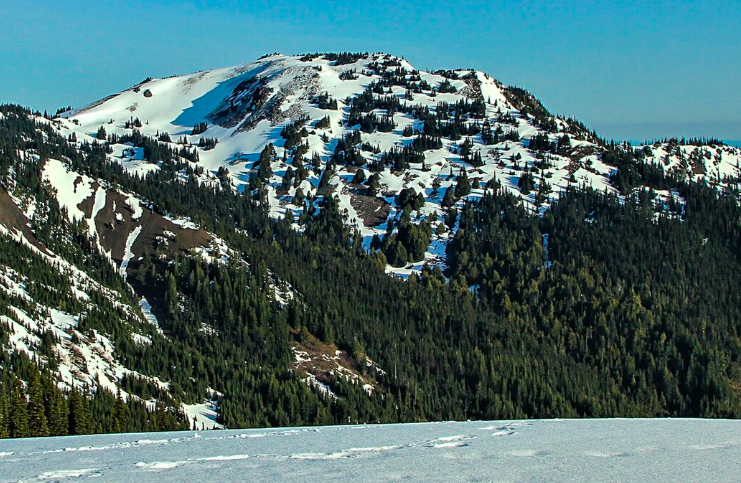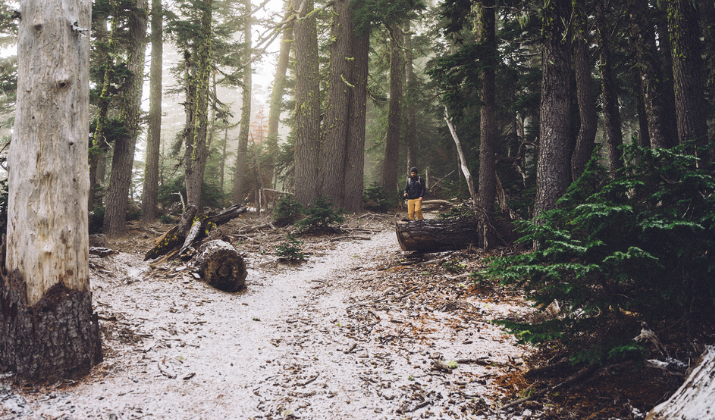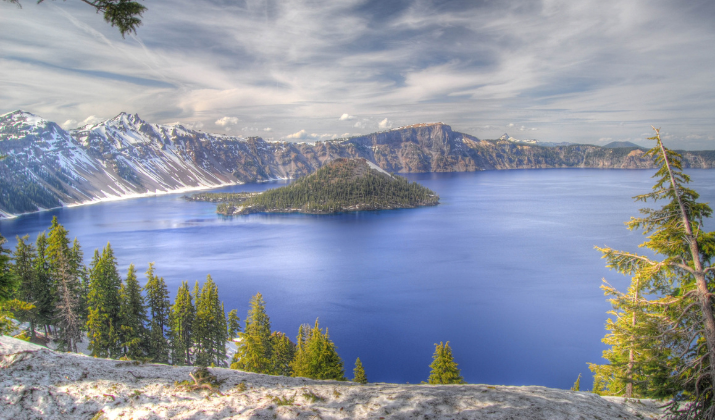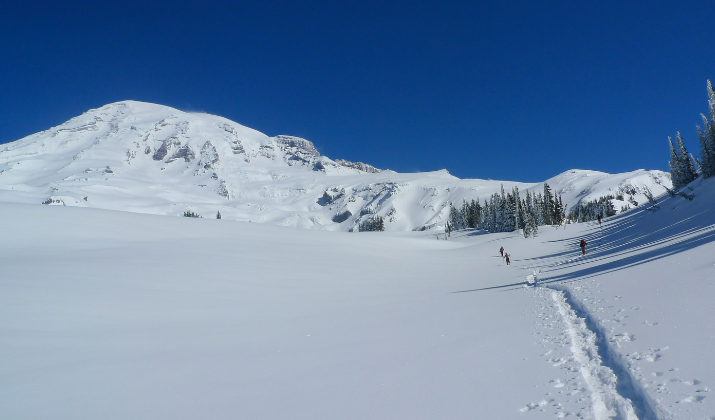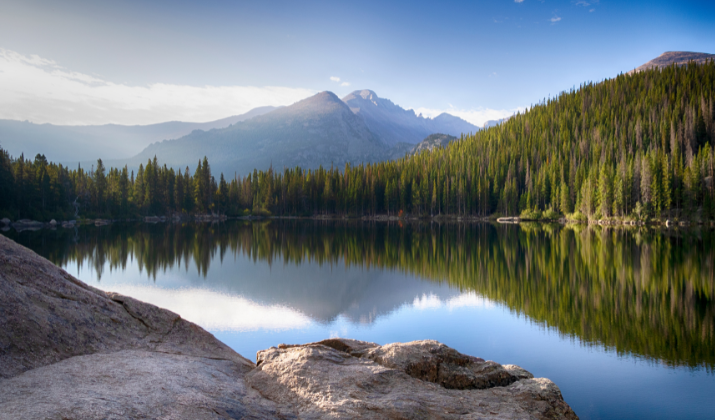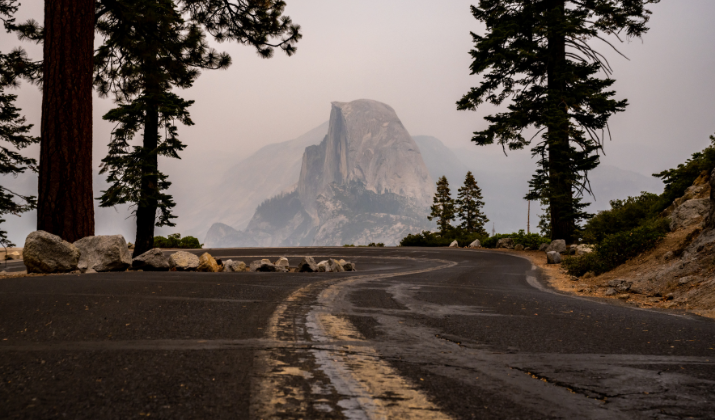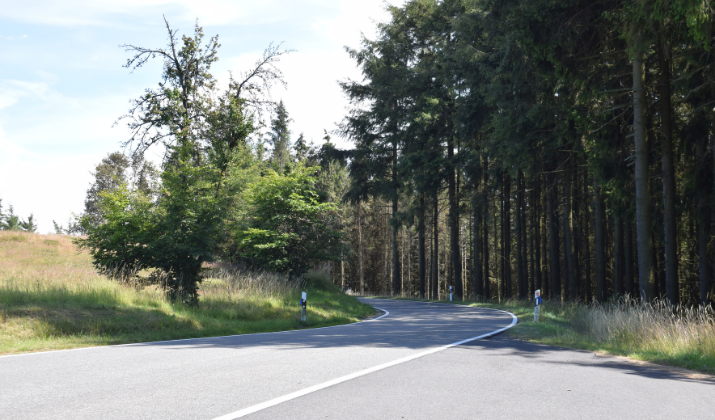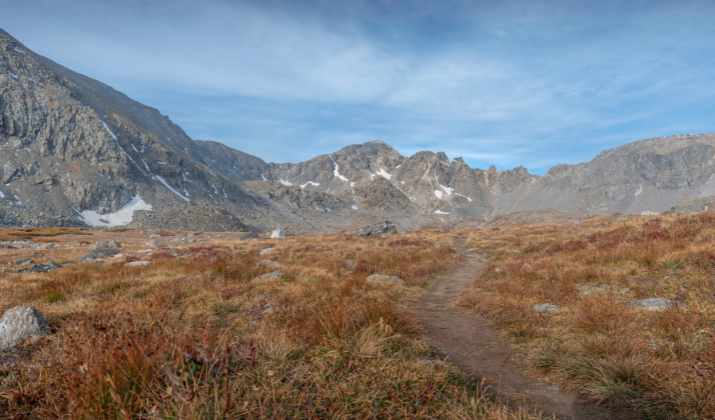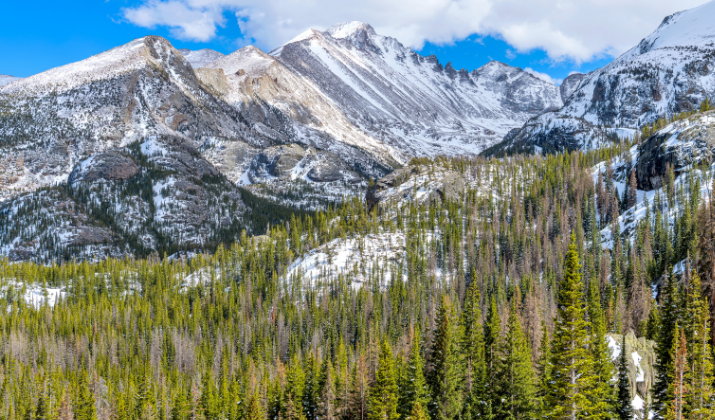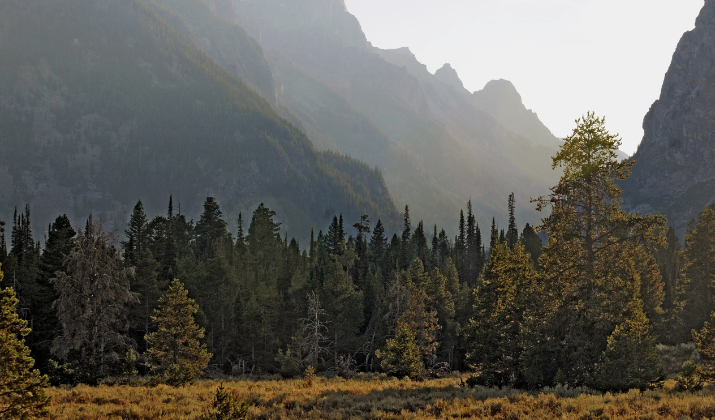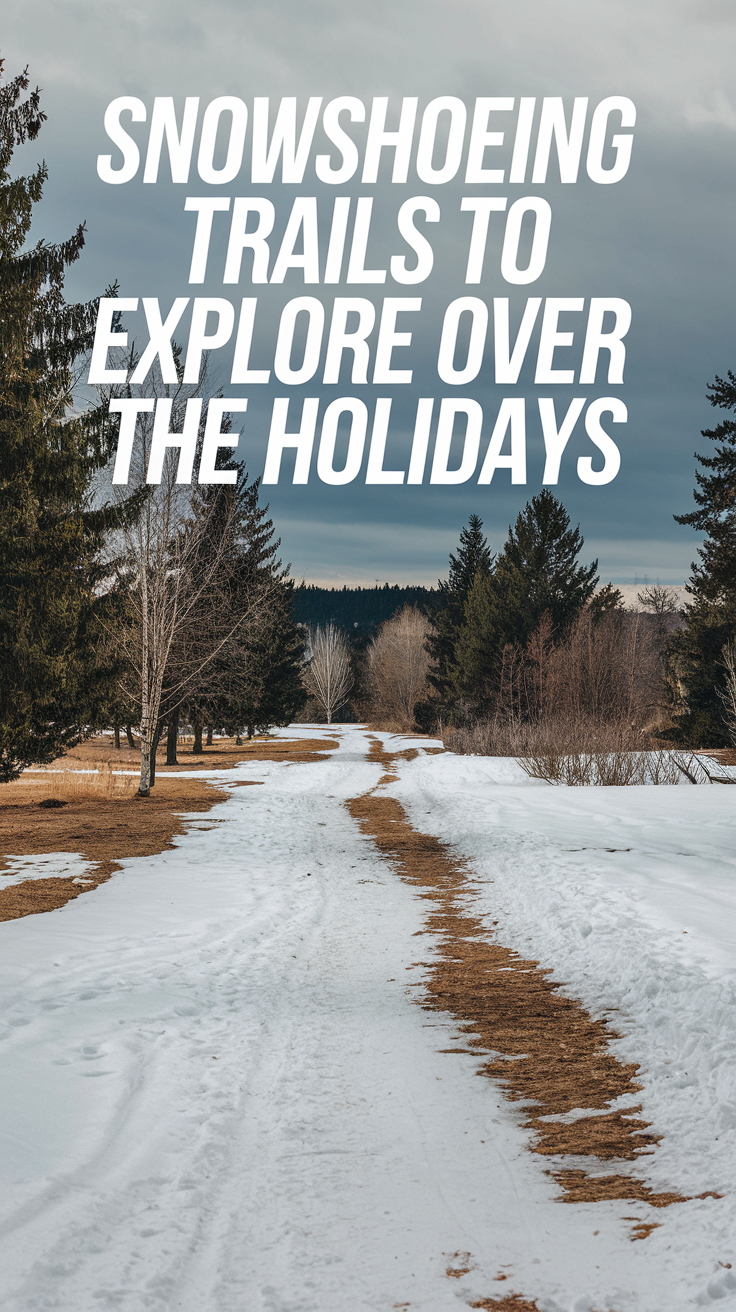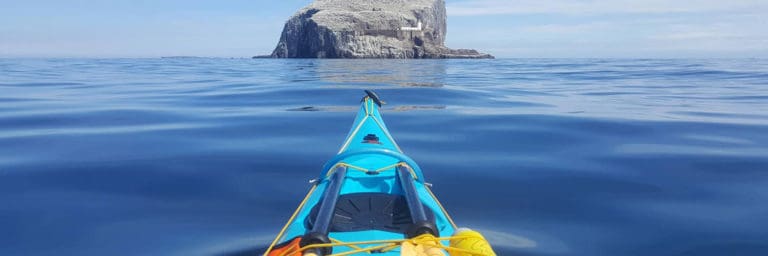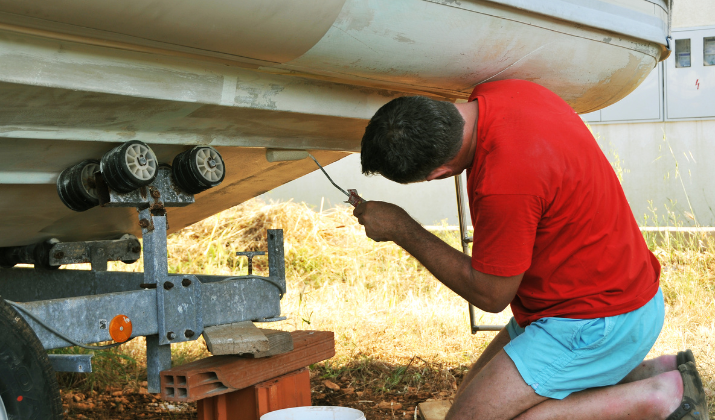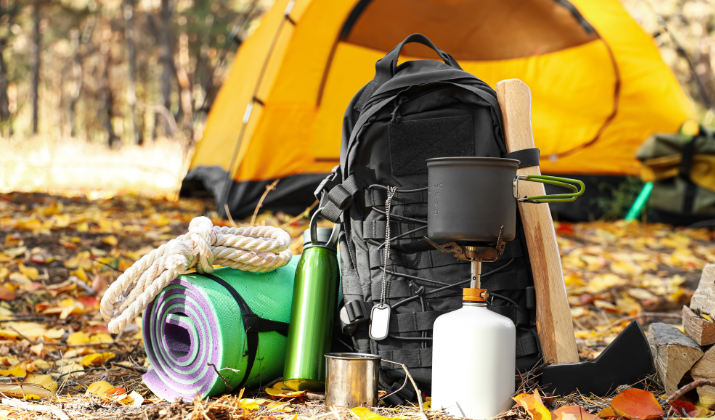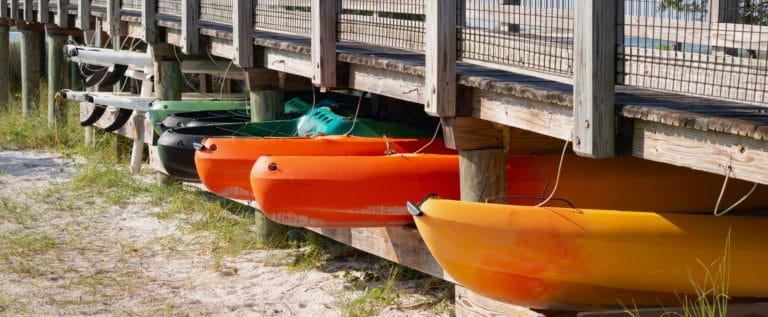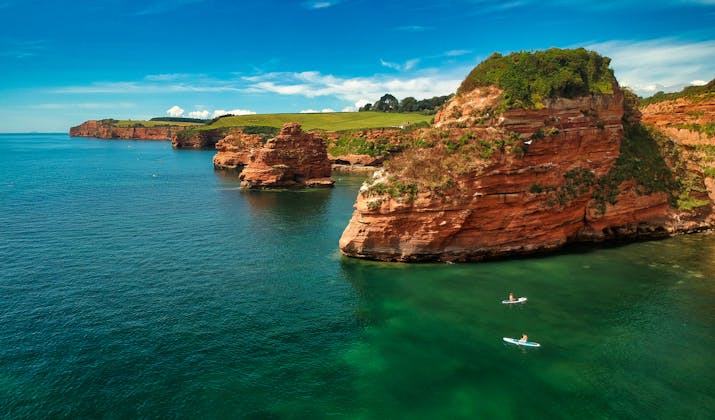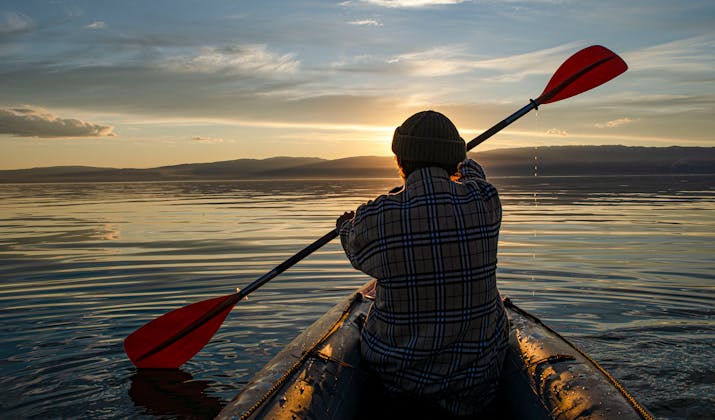Snowshoeing offers a unique way to explore America’s most stunning landscapes during their quietest, most serene season.
From the ice-draped hoodoos of Utah to the snow-capped peaks of the Pacific Northwest, winter transforms familiar trails into newfound adventures.
Whether you’re seeking a peaceful solo trek through pristine powder or planning a family holiday adventure, snowshoeing provides an accessible entry point into winter wilderness exploration.
Unlike skiing or snowboarding, it requires minimal technical skill—as the old saying goes, “If you can walk, you can snowshoe.” Yet it opens up vast expanses of winter wilderness that would otherwise remain inaccessible during the snowy months.
In this post, we’ve compiled 15 of America’s most spectacular snowshoeing destinations, ranging from beginner-friendly nature loops to challenging mountain ascents.
Check them out.
1. Artist Point Trail – Mount Baker, Washington
Difficulty: Moderate | Distance: 4 miles round trip
Nestled in the Mount Baker-Snoqualmie National Forest, Artist Point offers some of the most spectacular winter views in the Pacific Northwest.
On clear days, snowshoers are treated to panoramic vistas of Mount Baker and Mount Shuksan. The trail is well-marked with orange poles, making it ideal for both newcomers and experienced snowshoers.
The parking lot is accessible via the Mount Baker Highway, though chains are often required.
2. Mirror Lake Loop – Yosemite National Park, California
Difficulty: Easy | Distance: 2.5 miles round trip
This accessible trail provides a perfect introduction to winter snowshoeing.
The loop circles Mirror Lake, offering stunning reflections of Half Dome in the winter light. The minimal elevation gain and well-maintained trail make it ideal for families and beginners.
The park often offers guided snowshoe walks during the holiday season.
3. Mount Marcy Trail – Adirondacks, New York
Difficulty: Challenging | Distance: 14 miles round trip
For experienced snowshoers seeking a challenge, the trek to New York’s highest peak offers a true winter adventure.
The trail starts at the Adirondak Loj and climbs through dense forest before opening up to alpine views.
While the full summit trek is demanding, snowshoers can turn around at Indian Falls (4.4 miles in) for a more moderate experience.
4. Lonesome Lake Trail – White Mountains, New Hampshire
Difficulty: Moderate | Distance: 3.1 miles round trip
This New England classic in Franconia Notch State Park leads to a pristine mountain lake with views of the Franconia Ridge.
The AMC’s Lonesome Lake Hut, operated in winter, provides a warm refuge and hot chocolate for chilly adventurers. The steady climb makes for a good workout without being overwhelming.
5. Mesa Top Trail – Bryce Canyon National Park, Utah
Difficulty: Easy | Distance: 2.3 miles round trip
Experience the unique beauty of Bryce Canyon’s red rock hoodoos draped in snow.
This lesser-known trail offers similar views to the popular Rim Trail but with fewer crowds. The contrast between red rocks and white snow creates stunning photo opportunities.
The park offers ranger-led snowshoe hikes during winter months.
6. Hurricane Ridge – Olympic National Park, Washington
Difficulty: Easy to Moderate | Distance: Various loops from 1.5 to 5 miles
Hurricane Ridge offers several snowshoeing options with breathtaking views of the Olympic Mountains and the Strait of Juan de Fuca.
The visitor center provides a warm base for operations, and the maintained trails are perfect for families.
On clear days, you can see all the way to Vancouver Island.
7. Black Mountain Trail – Green Mountain National Forest, Vermont
Difficulty: Moderate | Distance: 5.2 miles round trip
Hidden in Vermont’s pristine wilderness, this trail offers a genuine Northeast winter experience.
The gradual ascent through snow-laden evergreens leads to spectacular views of Lake George and the Adirondacks. The summit provides a perfect lunch spot with 360-degree views of the surrounding mountains.
The trail is particularly beautiful after fresh snowfall when the forest becomes a winter wonderland.
8. Crater Lake Rim Trail – Crater Lake National Park, Oregon
Difficulty: Moderate to Challenging | Distance: Various lengths available
Experience America’s deepest lake in its winter glory.
The park receives an average of 43 feet of snow annually, creating perfect conditions for snowshoeing.
Rangers offer guided snowshoe walks to learn about the park’s unique geology and winter ecology. The contrast between the deep blue lake and pristine white snow creates unforgettable views.
9. Skyline Trail – Mount Rainier National Park, Washington
Difficulty: Moderate | Distance: 3 miles round trip
Starting from Paradise Visitor Center, this trail offers close-up views of Mount Rainier and its glaciers.
Winter transforms the meadows into a snowy playground, with opportunities to spot wildlife and photograph the mountain in its winter coat.
The trail is well-marked and maintained, though avalanche awareness is essential.
10. Bear Lake Nature Trail – Glacier National Park, Montana
Difficulty: Easy | Distance: 2.7 miles round trip
This family-friendly trail circles Bear Lake, offering stunning views of the surrounding peaks reflected in the frozen lake surface.
The relatively flat terrain makes it perfect for beginners, while the stunning mountain scenery ensures experienced snowshoers won’t be disappointed.
Wildlife sightings, including winter birds and deer, are common.
11. Glacier Point Road – Yosemite National Park, California
Difficulty: Easy to Moderate | Distance: Various options up to 10.3 miles round trip
During winter, the famous Glacier Point Road closes to vehicles and becomes a scenic snowshoe route.
The trail offers multiple turnaround points, making it adaptable to different skill levels.
The highlight is reaching Glacier Point itself, with its iconic views of Half Dome, Nevada Fall, and the snow-covered High Sierra.
12. Highland Forest – Fabius, New York
Difficulty: Easy to Moderate | Distance: Various loops from 2.5 to 8 miles
Known as Central New York’s winter wonderland, Highland Forest offers over 20 miles of marked snowshoe trails through pristine forest.
The trail system features well-groomed paths that wind through old-growth forest and open meadows. The visitor center provides rentals and warm refreshments, making it perfect for a full day of winter exploration.
The varying trail lengths allow visitors to customize their adventure based on experience and energy levels.
13. McCullough Gulch Trail – Breckenridge, Colorado
Difficulty: Moderate to Challenging | Distance: 6.4 miles round trip
This stunning trail near Breckenridge offers a true Rocky Mountain experience with fewer crowds than nearby resort areas.
The trail follows a scenic creek up to a series of frozen waterfalls and an alpine lake. Winter transforms the gulch into an ice-sculpture gallery, with frozen cascades creating natural art installations.
The high altitude (starting at 10,300 feet) adds an extra challenge, but the views of Quandary Peak and the surrounding mountains make it worthwhile.
14. Emerald Lake Trail – Rocky Mountain National Park, Colorado
Difficulty: Moderate | Distance: 3.6 miles round trip
Starting from the Bear Lake trailhead, this popular trail takes you past three stunning alpine lakes: Nymph, Dream, and Emerald.
Each lake offers increasingly impressive views of the surrounding peaks. The trail gains about 650 feet in elevation, making it challenging enough to be interesting but not overwhelming for most snowshoers.
15. Cascade Canyon – Grand Teton National Park, Wyoming
Difficulty: Easy to Moderate | Distance: 4.5 miles round trip
Beginning at the Jenny Lake Visitor Center, this trail offers intimate views of the Teton Range.
The relatively flat terrain makes it perfect for families and beginners. Wildlife sightings are common – look for moose, elk, and winter birds.
The snow-covered canyon walls create a stunning winter corridor that seems straight out of a holiday card.
The frozen lakes create spectacular photo opportunities.
Essential Tips for Winter Adventuring
Here are some valuable tips to consider when heading out for a winter adventure trip.
- Always check weather conditions and trail status before heading out
- Carry the ten essentials, including extra layers and emergency supplies
- Start early to make the most of limited winter daylight
- Let someone know your plans and expected return time
- Consider taking a basic snowshoeing class if you’re new to the sport
- Many of these locations rent snowshoes if you don’t own a pair
Wrapping Up
Remember that winter conditions can change rapidly, and some trails may require permits or passes.
Always contact the local ranger station or visitor center for the most up-to-date information before your adventure.
Happy trails and happy holidays!

